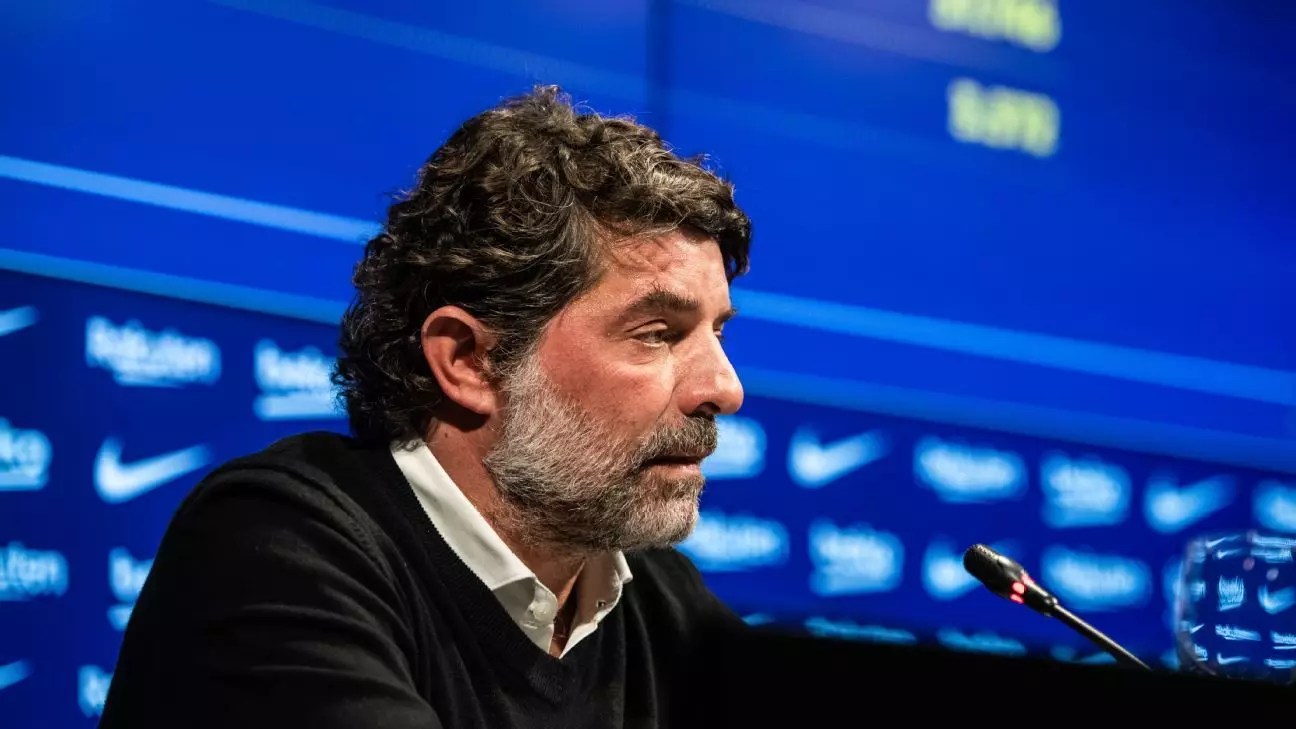The recent resignation of Juli Guiu, the vice president of FC Barcelona, has sent shockwaves through the club’s management and its fanbase. Official sources confirm that his departure was prompted by personal reasons connected to financial and strategic disagreements surrounding a significant deal with Nike. This situation reflects a larger, ongoing narrative at Barcelona, where the club’s governance struggles to align with its ambitious commercial goals.
Barcelona made an official statement announcing Guiu’s resignation, thanking him for his contributions to the club since he took office in 2021. During his tenure, Guiu successfully spearheaded negotiations with major partners, which suggests that his role was pivotal in stabilizing the club’s financial relationships. However, such a move raises questions about the internal dynamics at the club and the challenges that come with high-stakes negotiations involving multimillion-euro contracts.
The core of the controversy centers on a new multi-year agreement with Nike reported to be worth over €100 million annually. Guiu’s concerns over specific terms in the contract reveal a deeper rift regarding financial strategies and ethical considerations in modern sports partnerships. His sidelining from the negotiation process could suggest a significant disconnect between Guiu’s vision and the broader objectives of the Barcelona board, which has recently faced scrutiny for its financial shackles.
Additionally, Guiu’s protest over the commission fees paid to the intermediary in the deal, Darren Dein, adds another layer of complexity to the situation. It raises ethical questions about the transparency and fairness of agent negotiations—issues that are increasingly important in today’s sports world where clubs face not only external pressures but also internal dissent.
Guiu’s departure represents more than just a change in personnel; it underscores the instability within Barcelona’s hierarchy as it seeks to redefine itself post-pandemic while also remaining competitive on both domestic and international fields. His resignation occurs amidst external pressures, including regulatory challenges from the Spanish football authorities concerning compliance with financial fair play rules. This context amplifies the significance of Guiu’s exit, as it comes during a critical period for the club when financial prudence is paramount.
The controversy surrounding Guiu’s resignation also indicates that off-the-field governance issues may overshadow Barcelona’s accomplishments on the pitch. With the recent decisions made by Spain’s Consejo Superior de Deportes allowing player registrations against La Liga’s regulations, the tension among the league’s teams heightens. Atlético Madrid and Las Palmas’s condemnation of the ruling illustrates a growing unease within the league about Barcelona’s strategic moves.
A New Era for FC Barcelona
Juli Guiu’s resignation serves as a pivotal moment for FC Barcelona—not merely due to the loss of a vice president but as a reflection of the ongoing tensions and challenges within the club’s upper management. As FC Barcelona navigates its financial landscape while attempting to maintain its competitive edge, this scenario may compel the club to rethink its approach to partnerships, internal governance, and public relations. The path forward is fraught with challenges, but it also offers an opportunity for renewed focus and improved decision-making that could steer the club toward a more sustainable and successful future.


Leave a Reply